Thank you to everyone who took part in the latest IPAA SA survey, which asked respondents, ‘What are the Opportunities for 2021?’. Below we highlight some of the responses from this survey – sharing a sunny outlook for 2021.
How positive do you feel about 2021 as a year of change and opportunity?
On average, respondents felt quite positively about 2021, providing a 64% confidence rating that 2021 would bring about opportunities for change and growth.
Many respondents felt that this sense of confidence came from the public sector’s demonstrated capability to band together and overcome tough challenges and that 2020 was a prime example of the public sector working at its best.
Has COVID-19 affected your career priorities and goals for the future?
92% of respondents shared that their career priorities and goals have changed in the wake of COVID-19, with many taking the opportunity to think about positive changes to work-life balance. Many have found a renewed sense of purpose in the work they are doing within the sector and hope to see positive changes to work culture continue.
What do you think will be the key opportunities for the SA public Sector in 2021?
82% of respondents agreed that ‘exploring the “future of work” and how the workplace has rapidly changed’ will be a key opportunity for the sector to explore. It was proven that the sector can work rapidly and adaptively to make large-scale changes to seemingly long-ingrained practices almost overnight. Respondents are eager to not lose this heightened responsiveness as we enter the ‘new normal’.
Putting a renewed focus on mental health and support was also noted by 67% of respondents to be an opportunity for this year and beyond as we look to new ways to support mental health and wellbeing in the workplace.
What can IPAA SA do to support you in 2021?
Respondents are eager for IPAA SA to help them explore the “post-COVID world” and to examine what the future of public service will look like in 2021 and beyond. From us, at IPAA SA, we can say that “we hear you loud and clear”, we look forward to bringing you new opportunities to engage in events and resources that will support you in this area.
It was also shared by respondents that many would benefit from being able to access on-demand live training from IPAA SA. Hearing from respondents located regionally, we understand that this can often feel isolating, and we look forward to using new virtual capabilities to engage you in IPAA learning, no matter where you are located.
If you have any comments you would like to add or if you have ideas on how IPAA SA can support you, please contact us.
Thank you to everyone who took part in the latest IPAA SA survey, which asked respondents, ‘What are the Opportunities for 2021?’. Below we highlight some of the responses from this survey – sharing a sunny outlook for 2021.
How positive do you feel about 2021 as a year of change and opportunity?
On average, respondents felt quite positively about 2021, providing a 64% confidence rating that 2021 would bring about opportunities for change and growth.
Many respondents felt that this sense of confidence came from the public sector’s demonstrated capability to band together and overcome tough challenges and that 2020 was a prime example of the public sector working at its best.
Has COVID-19 affected your career priorities and goals for the future?
92% of respondents shared that their career priorities and goals have changed in the wake of COVID-19, with many taking the opportunity to think about positive changes to work-life balance. Many have found a renewed sense of purpose in the work they are doing within the sector and hope to see positive changes to work culture continue.
What do you think will be the key opportunities for the SA public Sector in 2021?
82% of respondents agreed that ‘exploring the “future of work” and how the workplace has rapidly changed’ will be a key opportunity for the sector to explore. It was proven that the sector can work rapidly and adaptively to make large-scale changes to seemingly long-ingrained practices almost overnight. Respondents are eager to not lose this heightened responsiveness as we enter the ‘new normal’.
Putting a renewed focus on mental health and support was also noted by 67% of respondents to be an opportunity for this year and beyond as we look to new ways to support mental health and wellbeing in the workplace.
What can IPAA SA do to support you in 2021?
Respondents are eager for IPAA SA to help them explore the “post-COVID world” and to examine what the future of public service will look like in 2021 and beyond. From us, at IPAA SA, we can say that “we hear you loud and clear”, we look forward to bringing you new opportunities to engage in events and resources that will support you in this area.
It was also shared by respondents that many would benefit from being able to access on-demand live training from IPAA SA. Hearing from respondents located regionally, we understand that this can often feel isolating, and we look forward to using new virtual capabilities to engage you in IPAA learning, no matter where you are located.
If you have any comments you would like to add or if you have ideas on how IPAA SA can support you, please contact us.



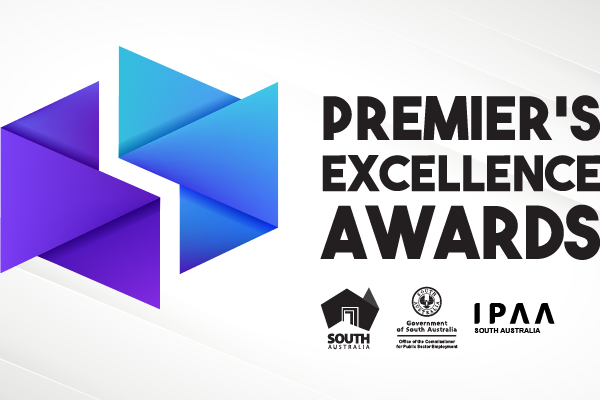
IPAA South Australia, in partnership with the Government of South Australia, hosted an event in late 2020 to unpack the Uluru Statement from the Heart .
The event began with a Welcome to Country from Robert Taylor representing three different Aboriginal groups — the Ngarrindjeri from down on the Coorong, the Nharangga from the York Peninsula, and the Kaurna people of the Adelaide plains.
Kirstie Parker, acting Executive Director of Aboriginal Affairs and Reconciliation with the Department of the Premier and Cabinet, then introduced Professor Megan Davis — Pro Vice Chancellor and Balnaves Chair in Constitutional Law, Indigenous Law Centre, UNSW — to deliver her keynote address.
Professor Megan Davis has been working on constitutional recognition for two decades, and read out the Uluru Statement from the Heart on the floor of the First Nations Convention in May 2019. Her address focused on what the Uluru Statement from the Heart is, where it has come from, and what it means.
The more technical complexities were then addressed by a discussion panel facilitated by Kirstie Parker which included Professor Davis, David Brown (Department for Correctional Services), Kim Cheater (PwC Australia), Arrin Hazelbane (Department of Human Services), and Jim McDowell (Department of the Premier and Cabinet).

Robert Taylor of the Ngarrindjeri, Nharangga and Kaurna peoples delivered the Welcome to Country.
Professor Davis described how constitutional recognition has been a project in Australia — mandated and supported by the Australian Government at the Commonwealth level — for about ten years.
‘So it’s been about ten years that we’ve been in this process of eliciting what constitutional recognition might mean in terms of the actual amendment of the Australian Constitution’s text to recognise First Nations people.
And so it’s had multi-party support for a decade, and a bit longer before that, but we’ve seen about five Federal processes now — including expert panels and Referendum Councils, and Parliamentary committees, and independent reviews — five of them in ten years. And eight reports in ten years.’
Professor Davis went on to observe:
‘So it’s a lot of work in one area of public policy.
And a lot of that culminated with this issuing of the Uluru Statement from the Heart, and a very substantive kind of platform for the nation in terms of addressing what it is the original grievance really — what Patrick Dodson famously called “Unfinished Business”.
But that reality is, this has not been addressed, and that really drives into the heart of the Uluru Statement from the Heart.’
Professor Davis said that one of the problematic areas of the last ten years has been the language of recognition:
‘Recognition is actually a really complex legal and political term because it can mean multiple things — it can mean symbolism, but it also means substantive, concrete reform.’
In the middle of 2015, the Government and Prime Minister and Cabinet invited forty Aboriginal and Torres Strait Islander leaders from across Australia to what became known as ‘The Kirribilli Meeting’.
Those Aboriginal and Torres Strait Islander leaders issued a statement called ‘The Kirribilli Statement‘.
Professor Davis explained that:
‘The Statement was very clear in 2015, that any reform to the Australian Constitution must involve substantive changes: that any reform to the Australian Constitution must lay the foundations for the fair treatment of Aboriginal and Torres Strait Islander peoples into the future.
And so this Kirribilli Statement drew a line in the sand. It said in 2015, two years before the Uluru Statement, that a minimalist approach to constitutional change — that provides preambular recognition, that removes Section 25, and the moderates race powers — does not go far enough, and would not be acceptable to Aboriginal and Torres Strait Islander peoples.’
Professor Davis went on to say :
‘One thing the Kirribilli Aboriginal and Torres Strait Islander leaders did do, was insist that there needed to be a dialogue — an ongoing dialogue, an engagement with Aboriginal people — on what the proposed question would be.
So that was the motivation for the Referendum Council.’
Professor Davis was a member of the Referendum Council appointed by Prime Minister Malcolm Turnbull and Opposition Leader Bill Shorten in December 2015.
The job of the Referendum Council was to advise the Prime Minister and the Leader of the Opposition on progress and next steps towards a successful referendum to recognise Aboriginal and Torres Strait Islander peoples in the Constitution.
Professor Davis designed the Dialogue process that engaged the Aboriginal and Torres Strait Islander community on constitutional recognition.
‘So we decided that this was a very difficult time to be going out to our communities — to ask them about constitutional reform.
There was already a huge backlash against the Recognise campaign and the neon ‘R’, and so it was very difficult, at that point, to engage the community who felt left behind by these campaigns that they didn’t see reflect their issues.
We were also just in the early stages for the Indigenous Advancement Strategy, and it was a difficult time to go out and consult.’
Given this context it was decided to spend a year consulting communities first, about what the dialogue structure would look like the following year.
‘And we did a lot of preparation, and sought a lot of advice from communities about how we would engage our people in a discussion about constitutional recognition.
There’s a really important point to be made here about Treaty and Voice — which was the priority form that got up — Treaty has always been an aspiration of our people … but Treaty doesn’t require constitutional enshrinement.
…
It was decided by everybody in the process that we weren’t going to waste the opportunity of constitutional recognition by just dumping this process, and dumping the opportunity for recognition, and just putting your hopes and all your eggs in the basket of a Treaty.’
Drawing on research from all around the world, it was decided that the dialogues — a term that came from the Kirribilli Meeting — would be built around citizens deliberative processes that have been shown to be really effective in informing people about the options on the table, and allowing them to have an informed decision.
‘The options for reform were given to us by the Prime Minister and the Opposition Leader, and they were based on the expert panel, and the Federal Parliament’s Joint Select Parliamentary Committee.
So nothing that we took out to these dialogues wasn’t something that the Government and the Opposition didn’t agree to, because they did.’
The Referendum Council was not given a lot of money to run the dialogues so they chose to run it with a robust sample of First Nations people.
Every single dialogue was run in exactly the same way. Numbers were capped at one hundred to enable enough advisers — constitutional lawyers and local Aboriginal leaders — to manage those conversations.
Sixty per cent of the invitations were privileged for traditional owners because the Referendum Council wanted the cultural authority of country to underpin the decision-making.
The dialogues were also designed explicitly to militate against group-think.
‘We didn’t want people to come in with campaigns for particular things that they’d been fighting for years.
We needed to break group-think to allow people to come to an informed decision on their own. And so that meant the findings of the Broome Dialogue were not then shown to the Dubbo Dialogue. The same with the Hobart Dialogue.
So we kept back all of the records of meetings which everybody would sign off on at the end of a dialogue.’
In addition:
‘We ran the structured process in a way that we would break up different positions to ensure that the process wasn’t being gamed from one dialogue to the next, but that it actually was the contemplation of a particular geographical place — which was really that group —contemplating recognition in the context of their region, and their people. and their country, and that it wasn’t something that was some big national pan-Aboriginal campaign.
And that was really critical for the dialogues.’
The Referendum Council sought permission from as many Traditional Owners, peak bodies and leaders as possible.
A trial dialogue was held at The University of Melbourne bringing together the Aboriginal leaders who would lead the dialogues in their regions through the entire dialogue process.
The Australian Institute of Aboriginal and Torres Strait Islander Studies were engaged to run the logistics. They engaged the local Land Councils to decide who would be invited and the local working group leaders who would then lead that process.
‘So we tried really hard to make sure that it was as “ground-up” as possible and that apart from the structure of the invitation list, that we weren’t imposing too much on the process.’
Dialogues were held in twelve regions around the country — in Hobart, Broome, Dubbo, Darwin, Perth, Sydney, Melbourne, Perth, Sydney, Melbourne, Cairns, Ross River, Adelaide, Brisbane, Thursday Island and Canberra.
The key characteristics of these dialogues were impartiality, accessibility of information, open and constructive dialogue, and mutually agreed and owned outcomes.
And then there was a National Convention held at Uluru from the 23rd to the 26th of May 2017.
‘What’s really important to know about the Uluru Statement and the meeting at Uluru was it wasn’t a vote on anything — it was to endorse what was done in the dialogues.
So that was a really critical thing — that when you got to Uluru people just couldn’t swan in from all parts of the country and undo what was done in the regional dialogues.
It was really important that those men and women and young people who had participated in those dialogues, that their decision-making was upheld at Uluru.
And so that was what was done.’
Professor Davis described the process at Uluru:
‘People read out the record of the meetings at Uluru and then we collated all the prioritisation of the law reforms, and the Voice to Parliament was the unanimous option for constitutional recognition.’
From her perspective, the dialogue process was completely unprecedented in the nation’s history:
‘It was the first time that a national constitutional convention was convened with, and for, our First Nations People on the Australian Constitution.’
Professor Davis said it was really the most proportionally significant consultation process that’s ever been undertaken, involving a robust proportion of delegates who participated from a population of approximately 60,000 people.
‘We didn’t just take a model from overseas and transplant it.’

Professor Megan Davis delivers her keynote address at the Uluru Statement of the Heart event.
The reform that came out of the Uluru Meeting is popularly known as Voice Treaty Truth — the constitutional element being a constitutionally enshrined Voice to Parliament.
Professor Davis described how a Voice to Parliament is a really common mechanism around the world, and that the United Nations spent a decade collating the way in which Western liberal democracies have accommodated the Indigenous Voice with the framework of the democratic state. This work led to the United Nations Declaration on the Rights of Indigenous Peoples in 2007.
Professor Davis described the Declaration as being ‘absolutely about self-determination and what that looks like in the framework of the state’, and pointed to Articles 18 and 19 which ‘set out political participation processes and institutions that states should consider when they’re thinking about how to improve participation of Indigenous peoples within the democratic framework’.
During the dialogues discussion about a Voice to Parliament drew substantially on the expert mechanism in the Declaration.
‘We traversed about fifty countries that have different ways of accommodating Voice.
We don’t do it very well because Voice is always filtered post-access, through bureaucracy — what that means is the bureaucracy talks to peak bodies and peaks kind of play this role.
But the Number One group that First Nations People said in their dialogues do not represent their voice, were peak bodies.
And that was a really important message for constitutional lawyers like me because it’s a red flag — that people really feel like their voice isn’t being heard.
It’s not being heard through the ballot box because of the small kind of number we constitute in the nation — but also because it is an Indigenous issue — but also it was a very strong feeling right across the country that peak bodies don’t represent the voice of Aboriginal people on the ground.
Professor Davis described how the dialogues realised a solution which no constitutional lawyer had come up with prior to the dialogues — something ‘which speaks to the creativity that can happen when you engage citizens and deliberate with citizens on really important reforms that will effect their lives’.
First Nations Peoples, through the dialogues, discussed how the Voice would not only empower people that don’t normally have a voice, but also provide accountability.
‘People felt it needed a First Nations Voice — so not an ATSIC model that elects an individual who represents an electorate — but it would be a process in which an individual would represent their First Nation.
So it’s still a collective model, but you are there on behalf of your Nation.’
The Voice would operate ‘at the front and political limit’ on the Parliament’s power to pass laws that effect Aboriginal and Torres Strait Islander people.
‘So that would mean the Voice was engaged for anything passed under 51 (26) of the race power, and 122 the plenaries power for the Territories.
And while the mob appreciated that this would not guarantee that these powers would not be used against them in the future in an adverse way, it does create a limit for political empowerment which would hopefully lead to better designed policies in the future.’
The second option was a Makarrata Commission — a commission that would be set up to supervise agreement making.
‘It was very clear from the dialogues that not everybody is ready to enter into a Treaty negotiation.
People were acutely aware of the power imbalance between the states or the Commonwealth and First Nations people.
In some areas of the country Treaty was really popular but in other areas where there are big Native Title agreements and a lot of agreement making there was a lot of fatigue.
Professor Davis explained that Treaty is a complex thing which is ‘very hard to negotiate when you have nothing, when you don’t have the resources’.
In addition:
‘It was very clear in the discussions that Native Title had had a negative detrimental impact upon a lot of communities, and people felt there needed to be healing and dispute resolution between families before they could even contemplate entering into negotiations with the state.’
The final option was Truth Telling.
Professor Davis described the importance First Nations people put on Truth Telling:
‘We couldn’t begin the dialogues at every single place that we went without mob wanting to talk for a day on Truth Telling and Australian history.
And that was quite an extraordinary privilege to be in those rooms and listen to people talk about Truth and the importance of Truth as being the foundation for us moving ahead with these reforms.’
Professor Davis described how, despite initially saying ‘No’ to the Uluru Statement from the Heart, Prime Minister Malcolm Turnbull put it into a Joint Select Committee a few weeks later.
The Joint Select Committee focused on the Uluru Statement and the reform.
‘That Joint Select Committee handed down their report and said — that despite the fact that Canberra wants symbolism — they came to see symbolism is off the table, and that the only viable option was Voice to Parliament.
And they recommended that the Voice was designed first, before you have a referendum — not necessarily legislated first, but designed first.’
Professor Davis described how, before the lockdown, Prime Minister Scott Morrison said in the Closing the Gap speech that he would look at the form of the Voice after Ken Wyatt, the Minister for Aboriginal Affairs, had consulted further over December, January and February.
‘Hopefully the Australian community will have made its views very clear — that they want an enshrined Voice which is very different to just legislating a Voice under the race power.’

Kirstie Parker
Kirstie Parker thanks Professor Megan Davis for her keynote address.
A link to the video of the full Uluru Statement from the Heart event is available below.
Professor Megan Davis’ address, delivered by Zoom due to travel restrictions caused by the COVID-19 pandemic, begins at 26:10 and runs for 37 minutes.
The panel discussion begins at 1:36:50 following a break for morning tea.
Further resources on the Uluru Statement from the Heart are available on IPAA South Australia’s event archives page.
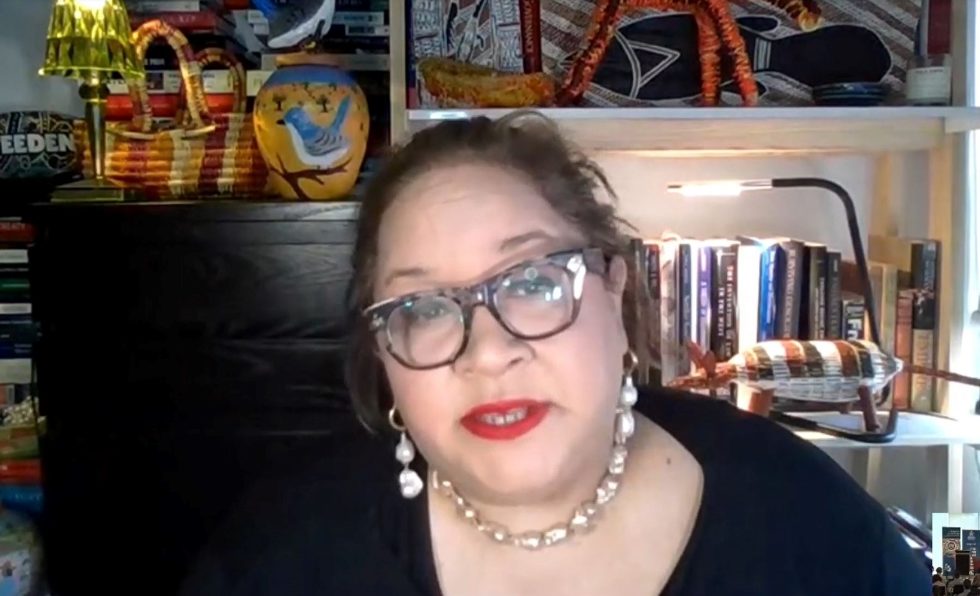
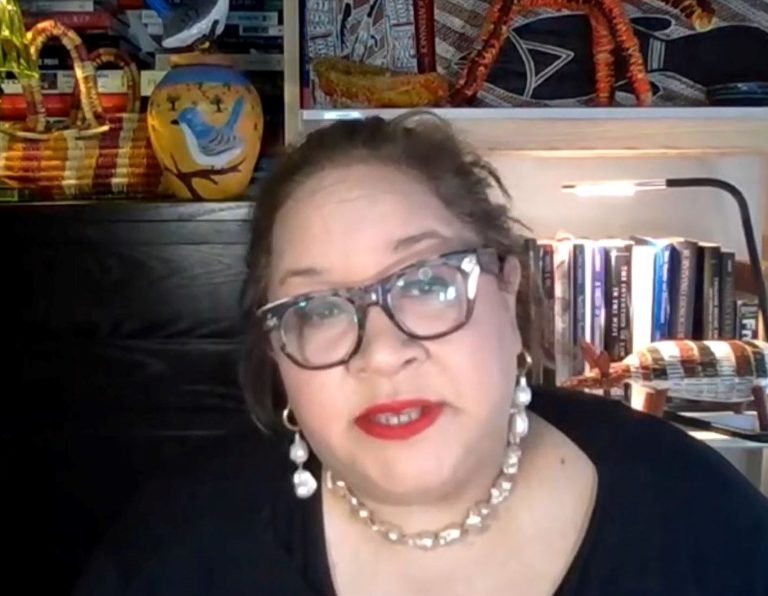
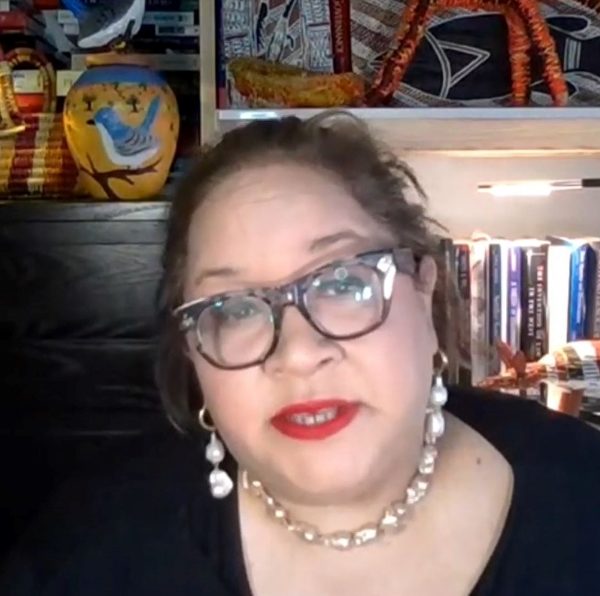
IPAA South Australia, in partnership with the Government of South Australia, hosted an event in late 2020 to unpack the Uluru Statement from the Heart .
The event began with a Welcome to Country from Robert Taylor representing three different Aboriginal groups — the Ngarrindjeri from down on the Coorong, the Nharangga from the York Peninsula, and the Kaurna people of the Adelaide plains.
Kirstie Parker, acting Executive Director of Aboriginal Affairs and Reconciliation with the Department of the Premier and Cabinet, then introduced Professor Megan Davis — Pro Vice Chancellor and Balnaves Chair in Constitutional Law, Indigenous Law Centre, UNSW — to deliver her keynote address.
Professor Megan Davis has been working on constitutional recognition for two decades, and read out the Uluru Statement from the Heart on the floor of the First Nations Convention in May 2019. Her address focused on what the Uluru Statement from the Heart is, where it has come from, and what it means.
The more technical complexities were then addressed by a discussion panel facilitated by Kirstie Parker which included Professor Davis, David Brown (Department for Correctional Services), Kim Cheater (PwC Australia), Arrin Hazelbane (Department of Human Services), and Jim McDowell (Department of the Premier and Cabinet).

Robert Taylor of the Ngarrindjeri, Nharangga and Kaurna peoples delivered the Welcome to Country.
Professor Davis described how constitutional recognition has been a project in Australia — mandated and supported by the Australian Government at the Commonwealth level — for about ten years.
‘So it’s been about ten years that we’ve been in this process of eliciting what constitutional recognition might mean in terms of the actual amendment of the Australian Constitution’s text to recognise First Nations people.
And so it’s had multi-party support for a decade, and a bit longer before that, but we’ve seen about five Federal processes now — including expert panels and Referendum Councils, and Parliamentary committees, and independent reviews — five of them in ten years. And eight reports in ten years.’
Professor Davis went on to observe:
‘So it’s a lot of work in one area of public policy.
And a lot of that culminated with this issuing of the Uluru Statement from the Heart, and a very substantive kind of platform for the nation in terms of addressing what it is the original grievance really — what Patrick Dodson famously called “Unfinished Business”.
But that reality is, this has not been addressed, and that really drives into the heart of the Uluru Statement from the Heart.’
Professor Davis said that one of the problematic areas of the last ten years has been the language of recognition:
‘Recognition is actually a really complex legal and political term because it can mean multiple things — it can mean symbolism, but it also means substantive, concrete reform.’
In the middle of 2015, the Government and Prime Minister and Cabinet invited forty Aboriginal and Torres Strait Islander leaders from across Australia to what became known as ‘The Kirribilli Meeting’.
Those Aboriginal and Torres Strait Islander leaders issued a statement called ‘The Kirribilli Statement‘.
Professor Davis explained that:
‘The Statement was very clear in 2015, that any reform to the Australian Constitution must involve substantive changes: that any reform to the Australian Constitution must lay the foundations for the fair treatment of Aboriginal and Torres Strait Islander peoples into the future.
And so this Kirribilli Statement drew a line in the sand. It said in 2015, two years before the Uluru Statement, that a minimalist approach to constitutional change — that provides preambular recognition, that removes Section 25, and the moderates race powers — does not go far enough, and would not be acceptable to Aboriginal and Torres Strait Islander peoples.’
Professor Davis went on to say :
‘One thing the Kirribilli Aboriginal and Torres Strait Islander leaders did do, was insist that there needed to be a dialogue — an ongoing dialogue, an engagement with Aboriginal people — on what the proposed question would be.
So that was the motivation for the Referendum Council.’
Professor Davis was a member of the Referendum Council appointed by Prime Minister Malcolm Turnbull and Opposition Leader Bill Shorten in December 2015.
The job of the Referendum Council was to advise the Prime Minister and the Leader of the Opposition on progress and next steps towards a successful referendum to recognise Aboriginal and Torres Strait Islander peoples in the Constitution.
Professor Davis designed the Dialogue process that engaged the Aboriginal and Torres Strait Islander community on constitutional recognition.
‘So we decided that this was a very difficult time to be going out to our communities — to ask them about constitutional reform.
There was already a huge backlash against the Recognise campaign and the neon ‘R’, and so it was very difficult, at that point, to engage the community who felt left behind by these campaigns that they didn’t see reflect their issues.
We were also just in the early stages for the Indigenous Advancement Strategy, and it was a difficult time to go out and consult.’
Given this context it was decided to spend a year consulting communities first, about what the dialogue structure would look like the following year.
‘And we did a lot of preparation, and sought a lot of advice from communities about how we would engage our people in a discussion about constitutional recognition.
There’s a really important point to be made here about Treaty and Voice — which was the priority form that got up — Treaty has always been an aspiration of our people … but Treaty doesn’t require constitutional enshrinement.
…
It was decided by everybody in the process that we weren’t going to waste the opportunity of constitutional recognition by just dumping this process, and dumping the opportunity for recognition, and just putting your hopes and all your eggs in the basket of a Treaty.’
Drawing on research from all around the world, it was decided that the dialogues — a term that came from the Kirribilli Meeting — would be built around citizens deliberative processes that have been shown to be really effective in informing people about the options on the table, and allowing them to have an informed decision.
‘The options for reform were given to us by the Prime Minister and the Opposition Leader, and they were based on the expert panel, and the Federal Parliament’s Joint Select Parliamentary Committee.
So nothing that we took out to these dialogues wasn’t something that the Government and the Opposition didn’t agree to, because they did.’
The Referendum Council was not given a lot of money to run the dialogues so they chose to run it with a robust sample of First Nations people.
Every single dialogue was run in exactly the same way. Numbers were capped at one hundred to enable enough advisers — constitutional lawyers and local Aboriginal leaders — to manage those conversations.
Sixty per cent of the invitations were privileged for traditional owners because the Referendum Council wanted the cultural authority of country to underpin the decision-making.
The dialogues were also designed explicitly to militate against group-think.
‘We didn’t want people to come in with campaigns for particular things that they’d been fighting for years.
We needed to break group-think to allow people to come to an informed decision on their own. And so that meant the findings of the Broome Dialogue were not then shown to the Dubbo Dialogue. The same with the Hobart Dialogue.
So we kept back all of the records of meetings which everybody would sign off on at the end of a dialogue.’
In addition:
‘We ran the structured process in a way that we would break up different positions to ensure that the process wasn’t being gamed from one dialogue to the next, but that it actually was the contemplation of a particular geographical place — which was really that group —contemplating recognition in the context of their region, and their people. and their country, and that it wasn’t something that was some big national pan-Aboriginal campaign.
And that was really critical for the dialogues.’
The Referendum Council sought permission from as many Traditional Owners, peak bodies and leaders as possible.
A trial dialogue was held at The University of Melbourne bringing together the Aboriginal leaders who would lead the dialogues in their regions through the entire dialogue process.
The Australian Institute of Aboriginal and Torres Strait Islander Studies were engaged to run the logistics. They engaged the local Land Councils to decide who would be invited and the local working group leaders who would then lead that process.
‘So we tried really hard to make sure that it was as “ground-up” as possible and that apart from the structure of the invitation list, that we weren’t imposing too much on the process.’
Dialogues were held in twelve regions around the country — in Hobart, Broome, Dubbo, Darwin, Perth, Sydney, Melbourne, Perth, Sydney, Melbourne, Cairns, Ross River, Adelaide, Brisbane, Thursday Island and Canberra.
The key characteristics of these dialogues were impartiality, accessibility of information, open and constructive dialogue, and mutually agreed and owned outcomes.
And then there was a National Convention held at Uluru from the 23rd to the 26th of May 2017.
‘What’s really important to know about the Uluru Statement and the meeting at Uluru was it wasn’t a vote on anything — it was to endorse what was done in the dialogues.
So that was a really critical thing — that when you got to Uluru people just couldn’t swan in from all parts of the country and undo what was done in the regional dialogues.
It was really important that those men and women and young people who had participated in those dialogues, that their decision-making was upheld at Uluru.
And so that was what was done.’
Professor Davis described the process at Uluru:
‘People read out the record of the meetings at Uluru and then we collated all the prioritisation of the law reforms, and the Voice to Parliament was the unanimous option for constitutional recognition.’
From her perspective, the dialogue process was completely unprecedented in the nation’s history:
‘It was the first time that a national constitutional convention was convened with, and for, our First Nations People on the Australian Constitution.’
Professor Davis said it was really the most proportionally significant consultation process that’s ever been undertaken, involving a robust proportion of delegates who participated from a population of approximately 60,000 people.
‘We didn’t just take a model from overseas and transplant it.’

Professor Megan Davis delivers her keynote address at the Uluru Statement of the Heart event.
The reform that came out of the Uluru Meeting is popularly known as Voice Treaty Truth — the constitutional element being a constitutionally enshrined Voice to Parliament.
Professor Davis described how a Voice to Parliament is a really common mechanism around the world, and that the United Nations spent a decade collating the way in which Western liberal democracies have accommodated the Indigenous Voice with the framework of the democratic state. This work led to the United Nations Declaration on the Rights of Indigenous Peoples in 2007.
Professor Davis described the Declaration as being ‘absolutely about self-determination and what that looks like in the framework of the state’, and pointed to Articles 18 and 19 which ‘set out political participation processes and institutions that states should consider when they’re thinking about how to improve participation of Indigenous peoples within the democratic framework’.
During the dialogues discussion about a Voice to Parliament drew substantially on the expert mechanism in the Declaration.
‘We traversed about fifty countries that have different ways of accommodating Voice.
We don’t do it very well because Voice is always filtered post-access, through bureaucracy — what that means is the bureaucracy talks to peak bodies and peaks kind of play this role.
But the Number One group that First Nations People said in their dialogues do not represent their voice, were peak bodies.
And that was a really important message for constitutional lawyers like me because it’s a red flag — that people really feel like their voice isn’t being heard.
It’s not being heard through the ballot box because of the small kind of number we constitute in the nation — but also because it is an Indigenous issue — but also it was a very strong feeling right across the country that peak bodies don’t represent the voice of Aboriginal people on the ground.
Professor Davis described how the dialogues realised a solution which no constitutional lawyer had come up with prior to the dialogues — something ‘which speaks to the creativity that can happen when you engage citizens and deliberate with citizens on really important reforms that will effect their lives’.
First Nations Peoples, through the dialogues, discussed how the Voice would not only empower people that don’t normally have a voice, but also provide accountability.
‘People felt it needed a First Nations Voice — so not an ATSIC model that elects an individual who represents an electorate — but it would be a process in which an individual would represent their First Nation.
So it’s still a collective model, but you are there on behalf of your Nation.’
The Voice would operate ‘at the front and political limit’ on the Parliament’s power to pass laws that effect Aboriginal and Torres Strait Islander people.
‘So that would mean the Voice was engaged for anything passed under 51 (26) of the race power, and 122 the plenaries power for the Territories.
And while the mob appreciated that this would not guarantee that these powers would not be used against them in the future in an adverse way, it does create a limit for political empowerment which would hopefully lead to better designed policies in the future.’
The second option was a Makarrata Commission — a commission that would be set up to supervise agreement making.
‘It was very clear from the dialogues that not everybody is ready to enter into a Treaty negotiation.
People were acutely aware of the power imbalance between the states or the Commonwealth and First Nations people.
In some areas of the country Treaty was really popular but in other areas where there are big Native Title agreements and a lot of agreement making there was a lot of fatigue.
Professor Davis explained that Treaty is a complex thing which is ‘very hard to negotiate when you have nothing, when you don’t have the resources’.
In addition:
‘It was very clear in the discussions that Native Title had had a negative detrimental impact upon a lot of communities, and people felt there needed to be healing and dispute resolution between families before they could even contemplate entering into negotiations with the state.’
The final option was Truth Telling.
Professor Davis described the importance First Nations people put on Truth Telling:
‘We couldn’t begin the dialogues at every single place that we went without mob wanting to talk for a day on Truth Telling and Australian history.
And that was quite an extraordinary privilege to be in those rooms and listen to people talk about Truth and the importance of Truth as being the foundation for us moving ahead with these reforms.’
Professor Davis described how, despite initially saying ‘No’ to the Uluru Statement from the Heart, Prime Minister Malcolm Turnbull put it into a Joint Select Committee a few weeks later.
The Joint Select Committee focused on the Uluru Statement and the reform.
‘That Joint Select Committee handed down their report and said — that despite the fact that Canberra wants symbolism — they came to see symbolism is off the table, and that the only viable option was Voice to Parliament.
And they recommended that the Voice was designed first, before you have a referendum — not necessarily legislated first, but designed first.’
Professor Davis described how, before the lockdown, Prime Minister Scott Morrison said in the Closing the Gap speech that he would look at the form of the Voice after Ken Wyatt, the Minister for Aboriginal Affairs, had consulted further over December, January and February.
‘Hopefully the Australian community will have made its views very clear — that they want an enshrined Voice which is very different to just legislating a Voice under the race power.’

Kirstie Parker
Kirstie Parker thanks Professor Megan Davis for her keynote address.
A link to the video of the full Uluru Statement from the Heart event is available below.
Professor Megan Davis’ address, delivered by Zoom due to travel restrictions caused by the COVID-19 pandemic, begins at 26:10 and runs for 37 minutes.
The panel discussion begins at 1:36:50 following a break for morning tea.
Further resources on the Uluru Statement from the Heart are available on IPAA South Australia’s event archives page.
The outstanding service and contribution of Erma Ranieri has been recognised in the Australia Day 2021 Honours list with a Public Service Medal.
As Commissioner for Public Sector Employment at the Office of the Commissioner for Public Sector Employment with the South Australian Government Erma has consistently demonstrated an unwavering commitment to shaping the future of South Australia’s public sector by driving sector-wide reform.
Erma is a strong advocate for diversity and gender equality in leadership in the public sector, and she challenges barriers to drive innovative, collaborative and connected services for the South Australian community.
The citation accompanying her Meritorious Service Award reads “for outstanding public service to people management, and to public sector reform, in South Australia”.
IPAA South Australia Vice President and Chief Executive of the Department of Treasury and Finance David Reynolds said:
“Erma embodies the public service values through her commitment to the people who work within it. This award is well deserved recognition for her leadership and drive for reform.”
Erma Ranieri is the IPAA South Australia President, a long-serving member of IPAA’s National Council, and a National Fellow.
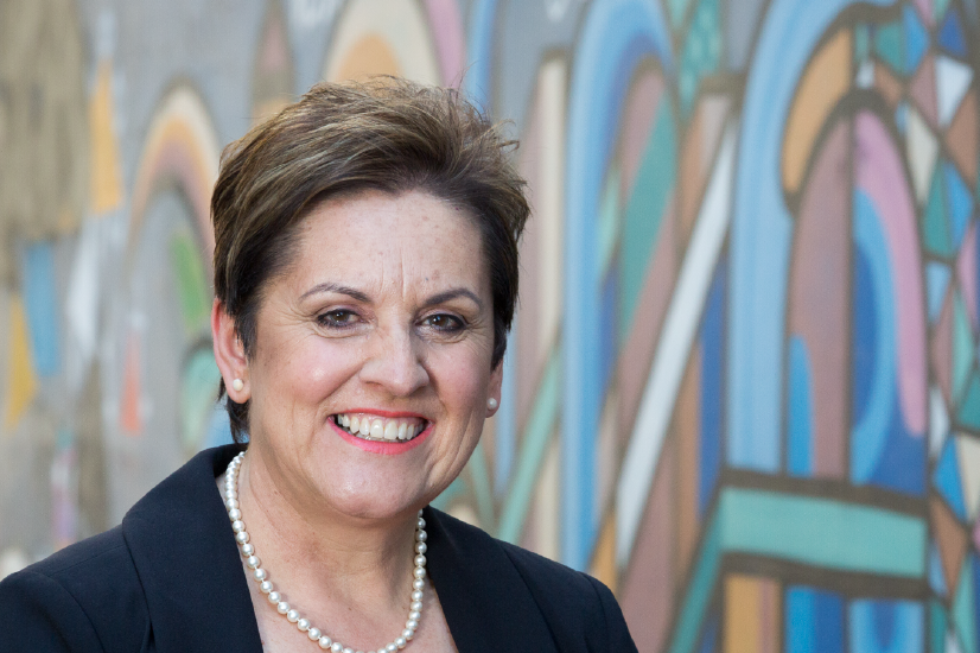
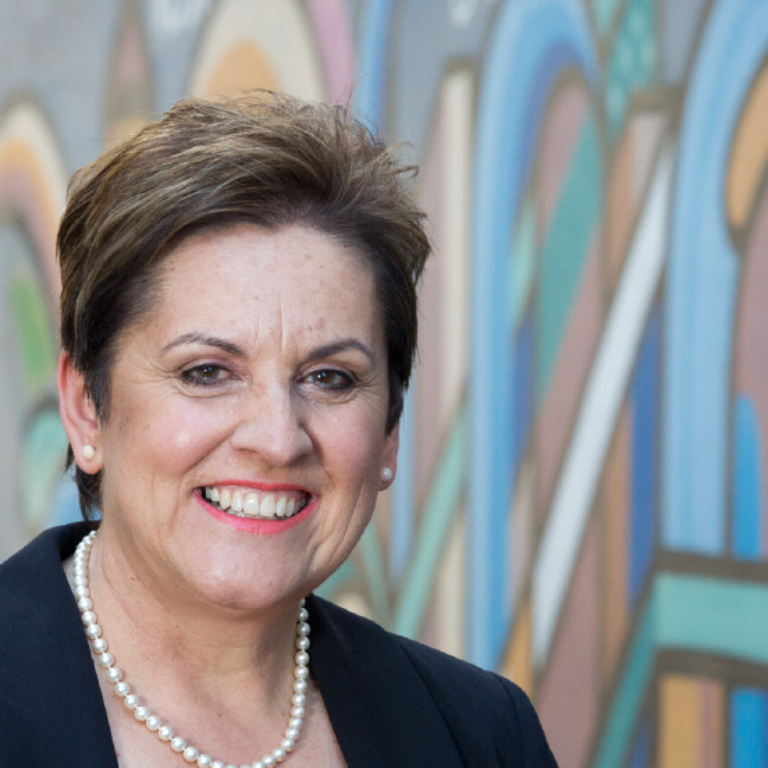
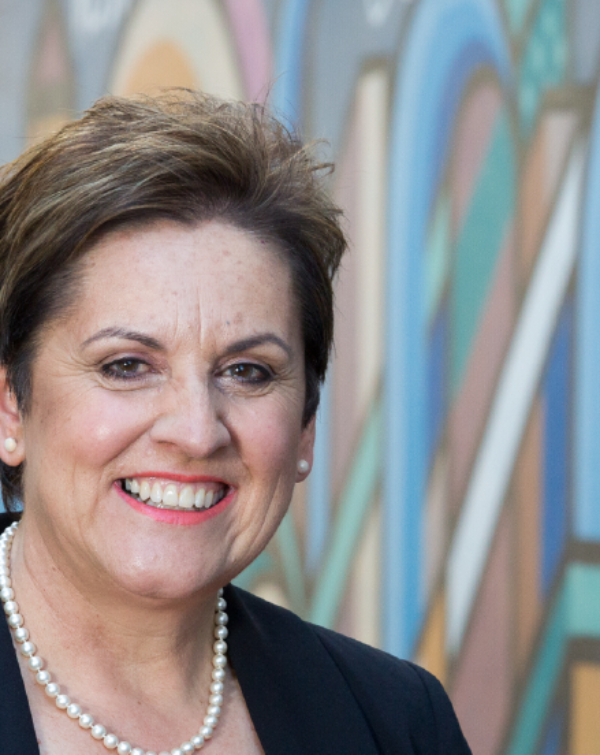
Throughout 2020 IPAA SA and the Office of the Commissioner for Public Sector Employment presented the COVID-19 Mental Wellbeing – Interview Series.
This series featured Forensic Psychologist, Luke Broomhall and also SA Chief Psychiatrist, John Brayley as they explored some of the mental health impacts of the pandemic as well as sharing on advice on seeking support.
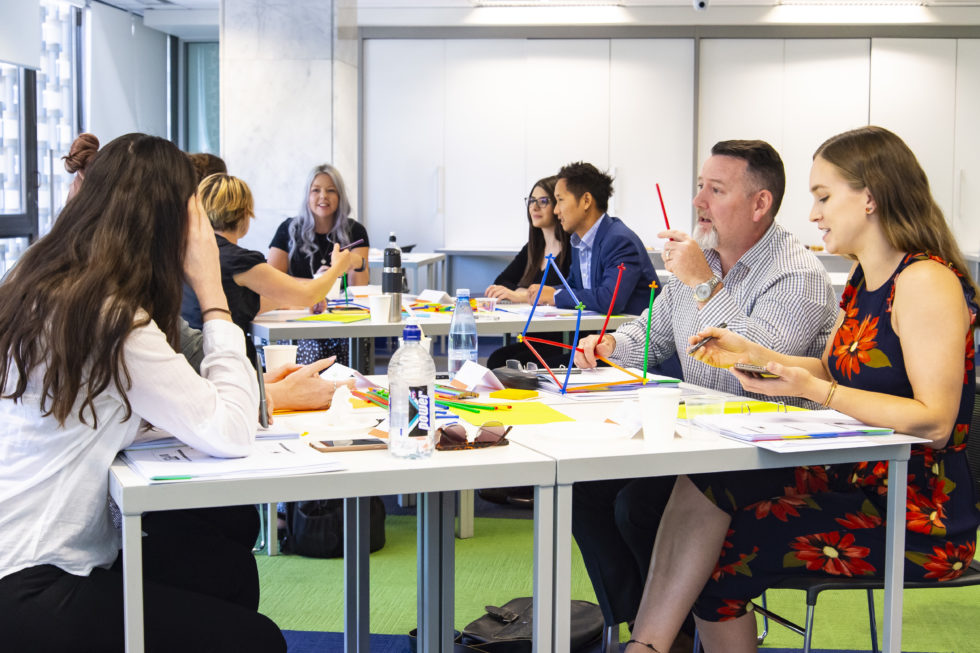
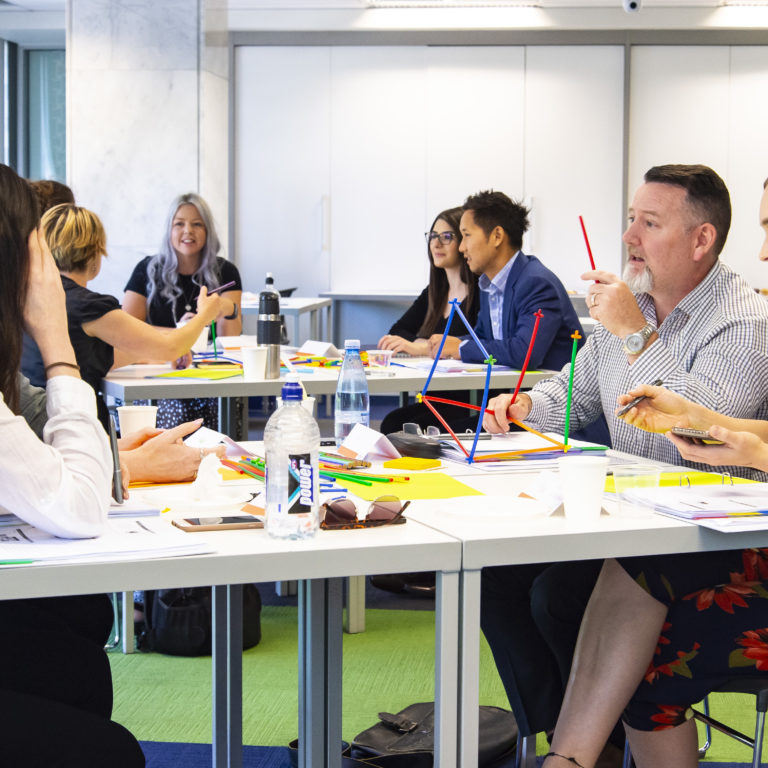

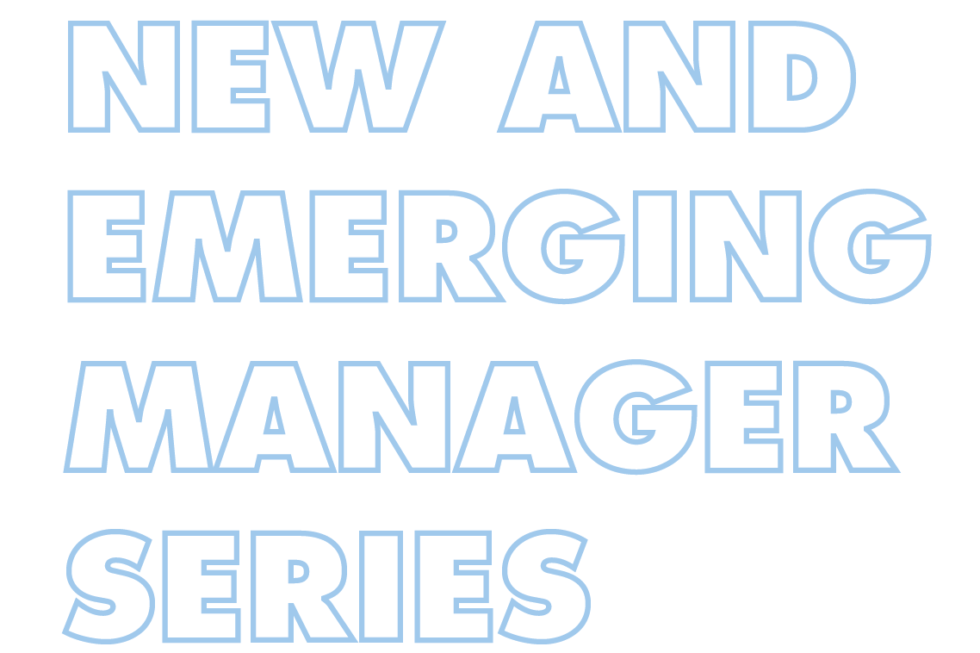
Are you coming to grips with leading a team and managing others for the first time? Explore current successful approaches and strategies that will teach you essential skills for leaders – from communication, workload management, performance management and much more.
Learn Face-to-face or Online
Enhance your general management skills and take your leadership and strategic thinking capabilities to the next level. This dynamic series includes modules on introduction to management, finance, project management, operational excellence and strategic management. Build your core management skills for personal and organisational success with this fundamental series.
Learn Face-to-face
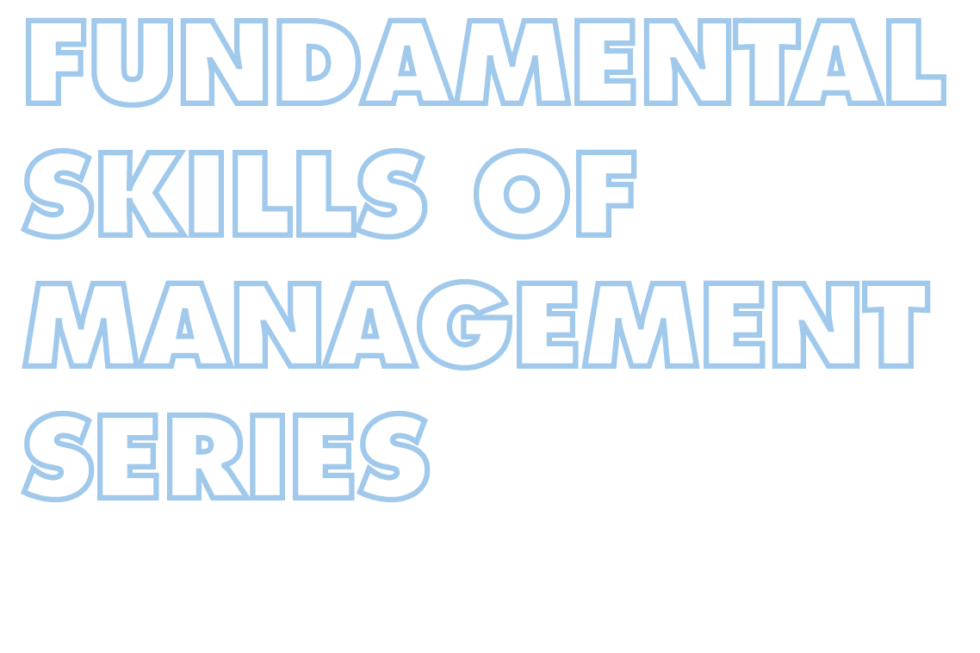
Advance your skills as a manager and leader with a unique understanding of how to thrive in a turbulent and ever-changing workplace. This series is for middle to senior-level public sector leaders, who are seeking to enhance and develop their management skills, as well as for those aspiring to the pathway to South Australian Executive Service (SAES).
Learn Face-to-face
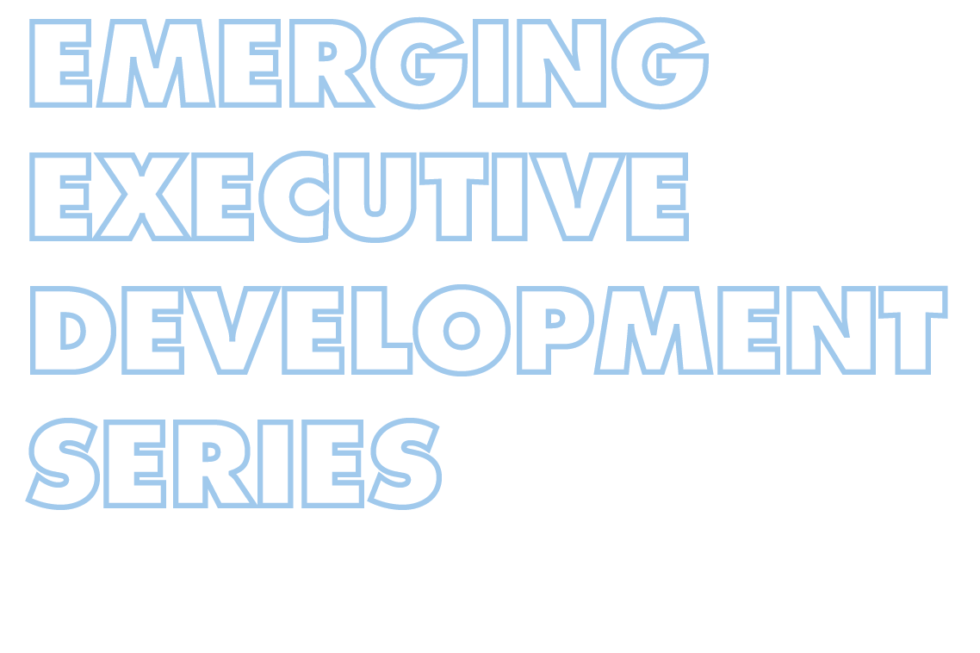
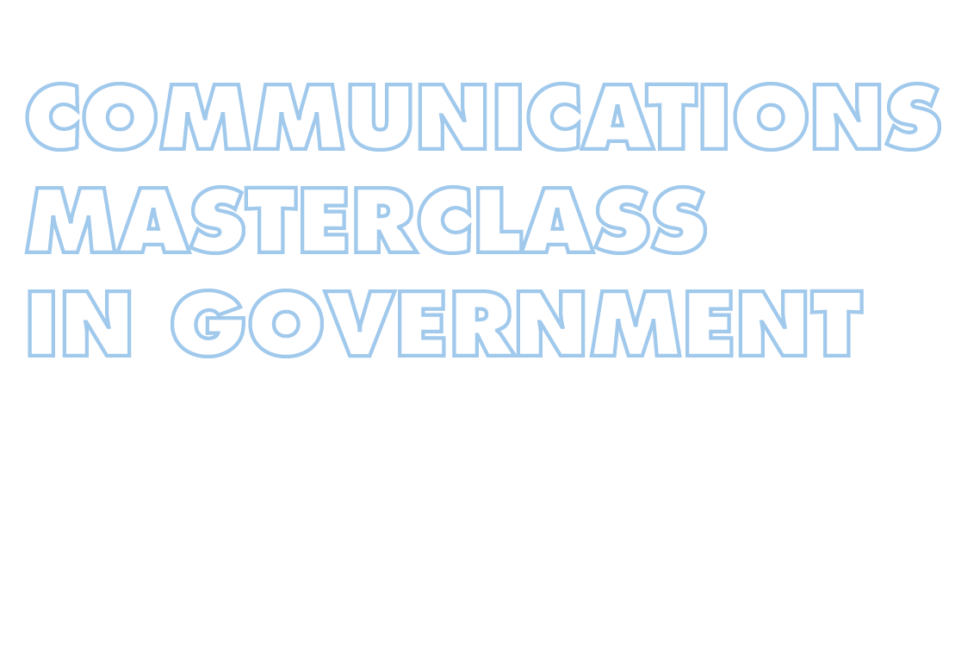
Explore in-depth the tools and strategies you can use to transform your communications in government, to have maximum engagement and impact. Whether you communicate internally or externally, this course will help save you time and stress in producing content that will get you the greatest returns.
Learn Face-to-face or Online
Advance your leadership capability with a strategic understanding of risk and assurance in the public sector. This three-part series equips emerging and current leaders to navigate uncertainty, strengthen resilience, and build informed, confident decision-making across their agency.
Learn Face-to-face

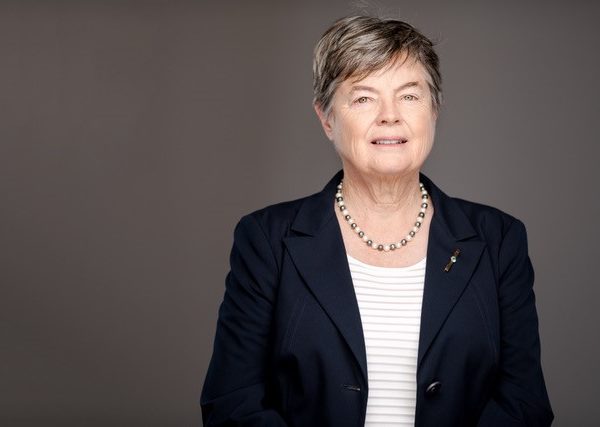
“There is still uncertainty, but there’s reason to be hopeful, and there are things that are within our control as a community and individuals and steps we can take.” – John Brayley

SA Chief Psychiatrist, Dr John Brayley, Forensic Psychologist, Luke Broomhall and Commissioner for Public Sector Employment, Erma Ranieri sat down virtually with IPAA SA to share some vital tips and advice on caring for your mental health and wellbeing in the wake of the pandemic.
The mental health ‘shadow pandemic’ has seen many of us and our loved ones dealing with increased stress. As a result of prolonged stress without relief, we are also now seeing anxiety and depression on the rise in our communities.
Below we summarise the key pieces of advice from this interview and the things you can do to manage stress and its effects.
It’s hard to be self-aware while we are experiencing stress. Sit down once-a-week to see how you are tracking and take stock of your mental health and priorities. Have a look at deadlines, commitments and goals and self-assess your stress levels. If you are struggling, set some strategies for “not how you normally function, but how you are functioning right now”. This may mean taking more time for yourself that week or moving some competing commitments around.
Learn how to say no or negotiate on additional commitments. If you take on more than you can handle, you are more likely to encounter stress and ‘burnout’. For example, if you are asked at work to take on an additional task, be realistic in setting expectations for its completion. If you are hesitant on how to respond to deadlines you can’t meet, you can reply with a friendly “I’d love to be able to that, I think I will be able to do that- but in the week afterwards, rather than in the next week”. If you are reasonable and polite you will be able to reach an understanding regarding deadlines and expectations.
After times of prolonged stress, we can feel fatigued and ‘burnt-out’. If you are feeling this way, or ideally before you get to this stage, you should seek some time to rest and recuperate. This could be in the form of a short holiday or a few days of relaxation at home. While we are so busy planning for work and life commitments, it’s important to consider where you are planning time for yourself, and the things that help you unwind.
Social isolation is a big source of stress for many of us still, as we are isolated from friends and family interstate or internationally. For those of us still working from home either full-time, part-time or in a flexible arrangement, we must also have an awareness of how this dynamic affects us mentally. If you are someone who thrives on face-to-face social interaction, it’s important to raise this with your team or manager and to look for opportunities to connect and communicate.
In the context of COVID-19 resilience is much more than ‘bouncing back after adversity’, it’s the management of continued adversity. Self-awareness is again a big help here, where this awareness will help you recognise the warning signs in yourself, your teammates and loved ones if they are not coping well.
What you can do to improve your resilience:
– Get the recommended amount of sleep (see tip 11).
– Follow a healthy diet.
– Take time for exercise and physical activity.
It’s important to hold a personal sense of achievement on a day-to-day basis. This can help promote increased self-awareness, that you still have control over your environment, even through crisis. In a time where we struggle with a seeming loss of control, taking the time to set small and achievable goals each day or week will help to boost your mood.
With screen use at an all-time high, it’s more vital than ever to give yourself a break from digital devices. Set aside some ‘green time’ each day, to be outside and away from the constant influx of information.
Without doubt, was has been a tough year, and for many of us it can feel like one challenge after another. We have all encountered adversity in recent times and it’s important to be kind to yourself if you have found yourself struggling. Anxiety and burnout are natural responses to prolonged stress and cumulative trauma, so don’t be afraid to seek help when you need it and take time for self-care.
Through all the stories of hardship and trauma, COVID-19 has also brought us some positives. We can be positive in the enviable position of South Australia and Australia compared to other countries around the world in their response. The pandemic has also been an unparalleled demonstration of the joint sense of purpose and community in the SA public sector, and is an experience that you can draw on for the rest of your career.
Amid adversity it’s important to focus on the ‘light at the end of the tunnel’. Being able to stay optimistic will help boost your resilience, particularly through times of prolonged stress. If you are struggling to stay optimistic you can use the simple statement of “All this is going on, it’s very overwhelming and seems negative…but I am still looking forward to [X],[Y],[Z} and things will get better”.
Sleep is one of our most basic needs and sleep deprivation has a major impact on our ability to function on all levels. In the workplace, this can mean a host of negative side effects such as impaired concentration, memory, and coordination. As a basis for self-care, look after your sleep and seek strategies to help improve this if you are struggling.
Its 100% normal to experience anxiety in response to stressors – what is important though is the way you respond to these feelings. A certain degree of stress is in fact healthy and can improve performance. However, If anxiety is occurring and impeding what you need to do seek help early on, to learn the strategies that will work for you and bring anxiety back to a manageable level. It can be helpful to familiarise yourself with the symptoms of anxiety, so you can identify these issues more easily in yourself and others. The Anxiety Checklist provided by BeyondBlue can help you self-assess if you may be struggling with anxiety symptoms.
We are in unprecedented times. Which means the sheer number or degree of stressors we face may simply overwhelm our normal coping responses. This is normal – and is certainly not a sign of ‘weakness’. If you are experiencing regular (for more than a week) symptoms related to irritability, sleep loss, poor appetite, concentration and memory difficulties, there are supports you can speak with confidentially. Your organization has an Employee Assistance Program which is confidential. Alternatively, you can nominate a Psychologist you would like to see. You can contact your General Practitioner for confidential advice and sites such as Beyond Blue provide excellent resources for understanding just how normal your experience can be and what help is available.
Remember, what you are going through now may not be ‘normal’ for you, but it is quite normal for people to go through. Be kind and patient with yourself and seek assistance early.
What can I do if I feel anxiety has spun out of my control?